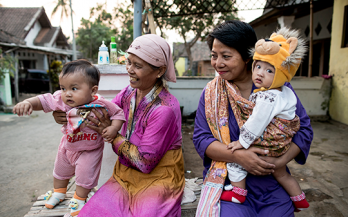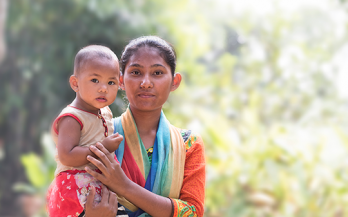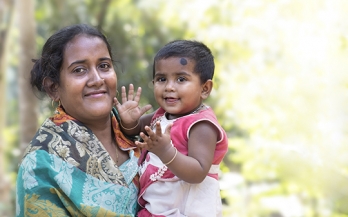The purpose of this study was to examine the effect of a novel behaviour change intervention, Gerakan Rumpi Sehat (the Healthy Gossip Movement), on infant and young child feeding practices in peri‐urban Indonesia.
The work reported here assesses the coverage achieved by two sales-based approaches to distributing a complementary food supplement (KOKO Plus™) to infants and young children in Ghana.
The present study aimed to determine the contribution of ID, infections and feeding practices to anaemia in Bangladeshi infants aged 6–11 months. Baseline data from 1600 infants recruited into a cluster-randomised trial testing the effectiveness of micronutrient powder sales by frontline health workers on the prevalence of anaemia were used.
This study evaluated the effects of a multi-micronutrient fortified juice drink given in different frequencies of consumption on hemoglobin concentration of schoolchildren. This study demonstrates the importance of targeting such interventions to appropriate populations.
The objective of this study was to pioneer the distribution of a locally-produced micronutrient powders, provided for sale through the public health system with counseling on optimal infant and young child feeding practices by trained health workers.
GAIN supports the manufacturing of multinutrient powders called Pushtikona targeted at infants aged 6 to 24 months. The overall objective of the evaluation was to identify strengths and weaknesses in program implementation, processes and uptake, which could ultimately affect program outcomes in Bangladesh.
This document details the nutritional guidelines for GAIN-supported projects for infants and young children. GAIN supports companies and agencies in the development, production and marketing of these three types of products to improve the nutritional status of older infants and young children in several developing countries.
This presentation is an overview of GAIN's Infant and Young Child Nutrition (IYCN) programme, which aims to improve availability and accessibility of affordable nutritious infant foods through innovative and new delivery models. It presents the three models of delivery (public, fully commercial and social business), a map of its 23 projects in 17 countries and six lessons derived from IYCN's operations.
Improving the nutrition status of adolescents is vital for future economic growth. This presentation was given by Lawrence Haddad, GAIN's Executive Director at the World Health Assembly 70 side event. The presentation focuses on the need for all stakeholders to make improving nutrition of adolescents a priority.
This report presents the potential contribution of market-based solutions to improve the quality of nutrition in the first 1,000 days of a child’s life. It discusses the successes and failures of best practice organisations that successfully sell nutritious complementary foods and supplements for infants in developing countries.










